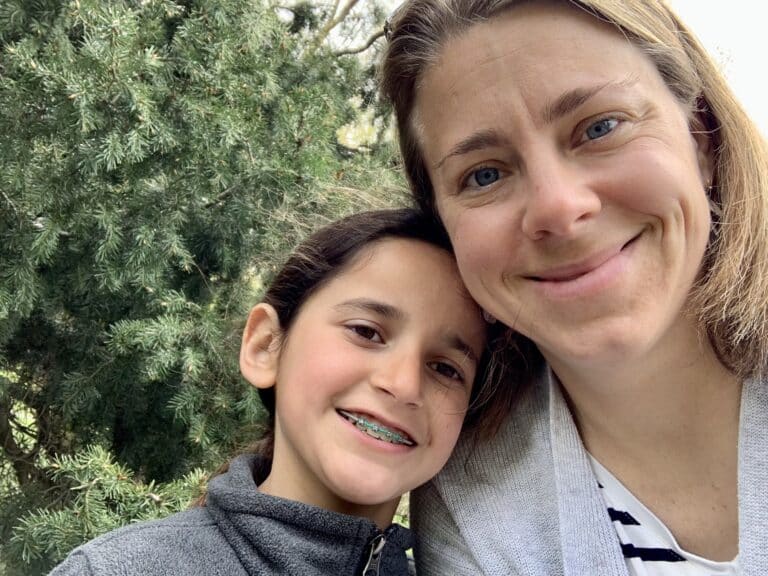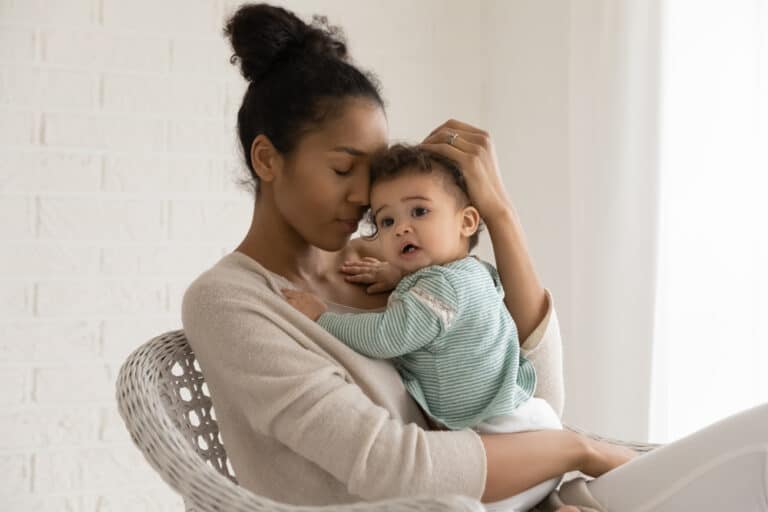Today I was at the playground with my four daughters. It was one of those perfect summer days, with soft green grass and a warm breeze. My 3-year-old was plodding through the grass when she suddenly stopped and started crying. She had seen some kind of bug and was convinced she couldn’t walk anymore. Hearing her cries, one of her older sisters ran over, took her hand, and carefully led her back to the playground.
Was there a vicious insect threatening her? Probably not. But she didn’t know that.
All she knew was she felt like she couldn’t go on.
Just like my little daughter, I’m surrounded by things I react to in a way that isn’t healthy and I don’t understand why. When one of my kids makes a snarky comment about the food I just cooked, it sends me through the roof. It doesn’t affect others like this. When my mother speaks to me in a critical tone, it makes my heart start racing, and I shut down. When a friend comments negatively about something important to me, I feel ashamed, and again, I shut down. I react to my kids in ways that I don’t like, but I’m not sure how to change.
When I became an adoptive mom and my kids began showing signs of trauma, I started to learn more about our brains. I learned how our childhood affects our adulthood.
RELATED: The Rollercoaster of Foster Care and Adoption
A child’s brain goes through exponential growth from infancy through early childhood. If there are traumatic events, abuse, or neglect that occurred during that time, the effects stick around into adulthood. If there isn’t a caring, emotionally healthy adult around to help the child cope with traumatic events or just life in general, a child can form unhealthy ways of relating to others. They may not even realize it until adulthood if they realize it at all.
After learning about trauma and the brain, I realized how important it is to take a second look at my own childhood.
My mother was not an emotionally healthy parent herself. She did her best, but I was not taught how to work through hard feelings. I was taught to just shove them down and move on. My thoughts and feelings weren’t taken seriously. They didn’t matter to my mother. So I learned that I didn’t matter. I learned that other people’s desires and opinions were more valid than mine.
RELATED: Going to Therapy is Saving My Life
But did I need therapy for that? I still wasn’t so sure. I mean, my mom wasn’t like those parents you see in Lifetime movies. She didn’t lock me in a closet. I didn’t think I needed therapy just for having a disappointing childhood. There is this idea in our culture that bringing up the past does more harm than good and that we just need to move on from all that and focus on the future.
It wasn’t until a good friend encouraged me (several times over the course of a year— OK, maybe “nagged” is a better word) to seek therapy that I finally did. I’m so glad I did.
I’ve been in therapy for a little over a year now.
Going to therapy, for me, has been like an older sister leading me through things I don’t understand. My therapist has helped me excavate and shed light on my harmful childhood. She has been by my side as I dig it up, examine it, process it through a healthy adult lens, and put it back in a healthy place. It’s hard work. It’s painful. But it is worth it.
I have learned to change my initial, unhealthy reactions to my kids into calm observations about my feelings. When I can calmly process something and think about the “why” behind it, I can choose my reaction instead of my reaction overtaking me. I can check in with my body to see how it’s feeling when I’m overwhelmed. I can turn my flashes of anger into compassion for my children. Best of all, I’ve learned to see my kids as I would have wanted to be seen when I was their age.
RELATED: I’m Raising Kids Who Aren’t Afraid of Therapy
It’s not a perfect process. I don’t react positively 100 percent of the time. But I am getting so much better.
I am glad that the stigma around seeing a therapist is evaporating. But we still have a long way to go. One friend recently commented, “Oh, you just need to leave all that stuff in the past. It doesn’t matter anymore.” Actually, the fact that so many of us are realizing how much the things of our childhood do matter should tell us that that way of thinking isn’t working anymore.
There is also an idea that “Oh, I don’t have time for this right now. I’ll deal with it later when the kids are older, my job is easier . . .” Fill in the blank.
You owe it to yourself to deal with it now.
Therapy can be expensive, but it has been my experience that mental health professionals are willing to arrange a payment system that works for both of you. It’s worth asking about.
Life is never going to get easier, it’s just going to keep chugging along, dragging you along with it. Do yourself a favor and start taking care of your mental health now.
If life is feeling overwhelming to you, or if you feel like you have to try so hard just to be a normal mom, talking to someone can help. I want to be the friend who suggests you give therapy a try. You’re worth it.

If you liked this, you'll love our book, SO GOD MADE A MOTHER available now!
Order NowCheck out our new Keepsake Companion Journal that pairs with our So God Made a Mother book!
Order Now















